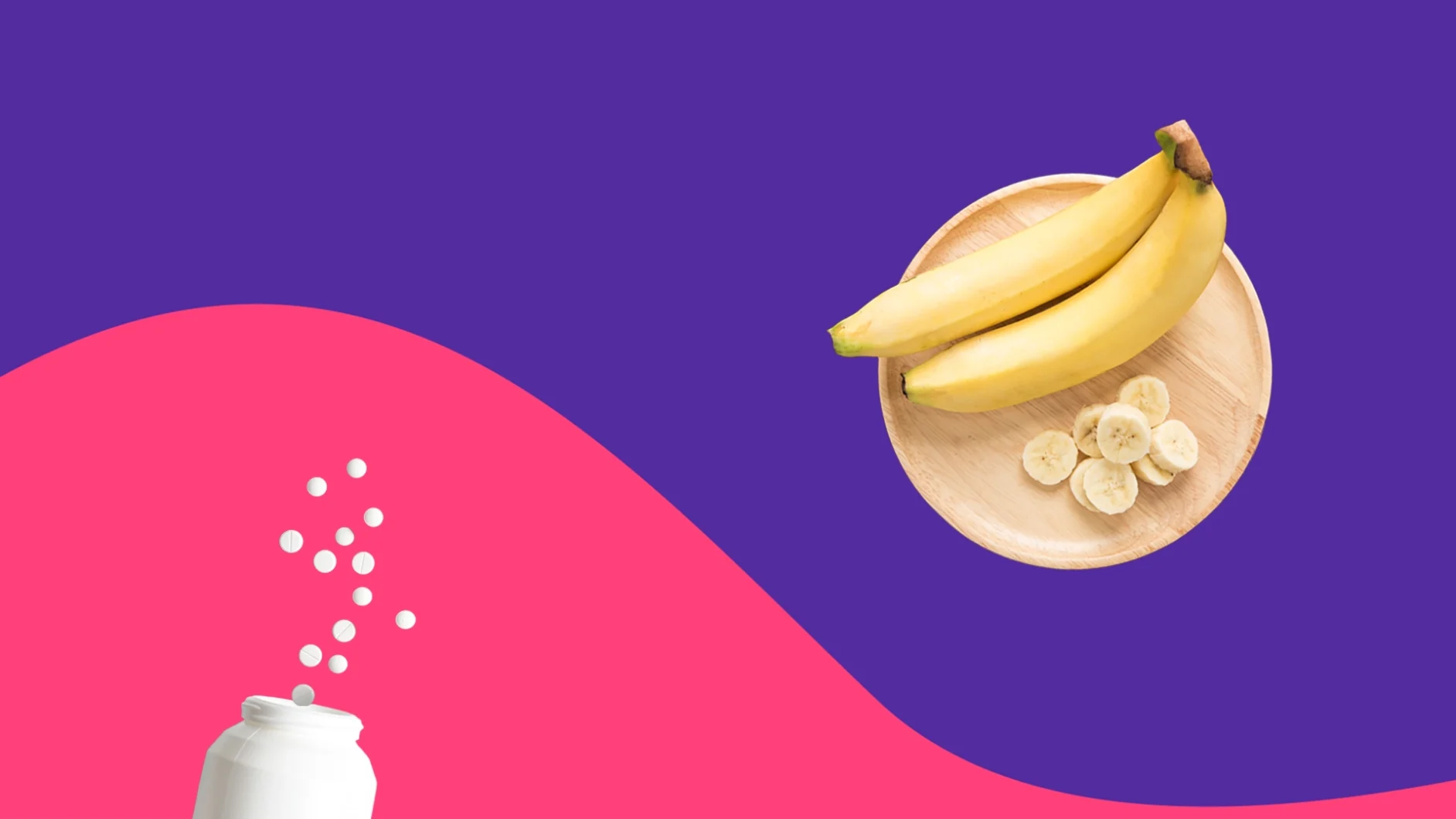Key takeaways
Losartan can increase potassium levels in your body, and bananas are a high-potassium food.
Most people can safely eat bananas while taking losartan.
People with certain health conditions or who are taking certain medications should exercise caution, as they may be more at risk of hyperkalemia (high potassium levels in the blood).
Losartan, or losartan potassium, is a generic medication that is FDA approved to treat hypertension (high blood pressure). It’s also available under the brand name Cozaar. Losartan is a member of a class of drugs called angiotensin II receptor blockers (ARBs). In addition to lowering blood pressure (which in turn lowers the risk of heart attack and stroke), losartan can be used to protect your kidneys if you have kidney disease and Type 2 diabetes.
Losartan can increase your potassium levels. Hyperkalemia is a medical condition that occurs when you have too much potassium in the blood. For most people, this isn’t an issue. However, people with certain health conditions need to be cautious when consuming potassium-rich foods, like bananas, while taking this medication.
Should you avoid bananas with losartan?
Most people can eat bananas in moderation while taking losartan. “Losartan can increase potassium levels in the blood, and bananas are high in potassium,” explains Raj Dasgupta, MD, an internist and professor at the University of Southern California. “It can become unsafe if you have kidney problems or are taking other medications that also increase potassium levels.”
Although bananas contain a lot of potassium, research finds that even people eating a high-potassium diet could safely take an angiotensin-converting enzyme (ACE) inhibitor or angiotensin receptor blocker (ARB), as long as they have normal kidney function.
However, people with certain medical conditions should ask their healthcare providers if they need to follow a low-potassium diet while taking losartan, including people who have:
- Poor kidney function
- A history of high levels of potassium
- Heart failure
These conditions make it harder for your body to remove excess potassium.
While taking losartan, you may need to monitor your potassium intake if you are taking certain medications or dietary supplements, such as:
- Potassium-sparing diuretics such as spironolactone, amiloride, eplerenone, or triamterene
- Calcineurin inhibitors, such as cyclosporine and tacrolimus
- Other ARBs, such as valsartan, candesartan, and irbesartan
- ACE inhibitors like lisinopril and enalapril
- Aliskiren
- Potassium supplements (this also includes salt substitutes that contain potassium)
Examples of other medications that may cause serious side effects when taken with losartan include:
- Lithium: Taking lithium with losartan can increase blood levels of lithium, potentially leading to lithium toxicity. Symptoms include dizziness, tremors, and confusion.
- Non-steroidal anti-inflammatory drugs (NSAIDs): Over-the-counter or prescription pain relievers like ibuprofen and naproxen can interfere with losartan’s blood pressure-reducing effects and lead to kidney problems.
If you’re at risk of too-high potassium levels, your provider may recommend a different treatment option for blood pressure, such as a calcium channel blocker. Calcium channel blockers generally don’t impact potassium levels. To avoid a drug interaction or adverse effect, be sure to tell your healthcare provider or pharmacist about all medications you are taking, including over-the-counter medications, prescription drugs, and vitamins or supplements.
What are the symptoms of high potassium levels?
When too much potassium builds up in the bloodstream, it’s called hyperkalemia. Hyperkalemia occurs when the potassium levels in the blood exceed 5.5 mEq/L. However, many people don’t experience noticeable symptoms until potassium levels are higher (6.5 mEq/L to 7 mEq/L).
Symptoms of hyperkalemia can include:
- Chest pain
- Labored breathing
- Nausea or vomiting
- Heart palpitations (irregular heartbeat)
- Slow, weak, or irregular pulse
- Fainting
RELATED: How to lower potassium levels
How to safely include bananas in your diet while on losartan
You don’t need to avoid bananas while taking the blood pressure medication losartan unless you have certain medical conditions or are taking certain medications. The following guidelines can help you consume this fruit safely while managing your blood pressure:
- Practice moderation: “You can usually eat bananas in moderation while on losartan,” says Dr. Dasgupta. “One banana a day is generally safe, but check with your doctor.”
- Monitor symptoms: Watch for signs of hyperkalemia. Contact your healthcare provider if you notice side effects of the medication.
- Eat a balanced diet: Including a variety of fruits and vegetables in your diet can help to avoid excessive potassium intake from any single source.
- Stay hydrated: This supports overall kidney function and helps maintain your body’s electrolyte balance.
RELATED: High-potassium foods to avoid if you have kidney disease
When to see your healthcare provider
Paul Daidone, MD, an internist based in Fayetteville, Arkansas, recommends contacting a healthcare professional if you have any signs of hyperkalemia, you start taking another medication or supplement that can impact potassium levels, or you feel unsure about how to eat a balanced, healthy diet while taking losartan.
Healthcare providers can also offer individualized medical advice and perform blood work to check how much potassium is in your system, says Dr. Daidone. Checking in regularly with your healthcare team ensures that losartan is managing your blood pressure without any unwanted side effects.
- Losartan, StatPearls (2024)
- Adequate intake of potassium does not cause hyperkalemia in hypertensive individuals taking medications that antagonize the renin angiotensin aldosterone system, The American Journal of Clinical Nutrition (2016)
- Potassium, National Institutes of Health (2022)
- Hyperkalemia, StatPearls (2024)
- High potassium level, MedlinePlus (2023)



